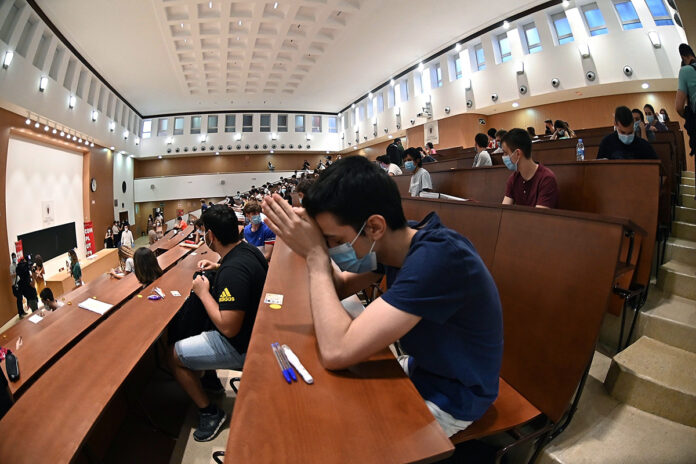During the month of June, more than 200,000 students from all over Spain face the most important exam of their entire formative stage: the Selectividad or EBAU (Baccalaureate Evaluation for University Access) as it is now known.
Until June 16, all those who opt for university must take the entrance exams -which this year will maintain the same format that was implemented in the last two courses as a result of the pandemic- and pass the cut-off mark that allows them to access the desired degree. La Rioja has been the first to summon its students, while those from Catalonia, Andalusia and those from the autonomous cities of Ceuta and Melilla will have to wait until the 14th.
Once the Baccalaureate is passed, certain doubts begin to arise among the students: “Will I be able to access the career I want?”, “What grade do I have to get?” “And if I don’t get the grade?” The concern does not lie so much in the passing, but in the grade obtained, which will be decisive for the student’s future. 90% of those who took selectivity between 2015 and 2021 passed, according to the Statistics of University Access Tests published by the Ministry of Education and in the last call, approved records were broken, with 94%. Getting to five, however, is not enough in many cases to choose the desired path if you aspire to study at a public university.
In this sense, each year the universities establish the cut-off marks of the previous year, that is, the lowest marks of the EBAU with which the students managed to get a place in each degree. Information that, although not definitive, since the cut-off mark varies each year and in certain grades the margin may be wider than in others, allows students to get an approximate idea of the minimum required to study the different grades in the different Spanish universities.
In the following table you can check what the cut-off mark was in the entrance exams last year according to the information published by the Ministry of Science, Innovation and Universities. Search for a degree, the name of a University to see the results.
The double degrees or PCEO (Joint Programming of Official Teachings) are, in general, those that register the highest cut-off marks, especially those related to the branch of science and more specifically those that include mathematics. The podium, therefore, is occupied by the double degree in Mathematics and Physics at the Complutense University of Madrid, with a cut-off mark of 13.85 out of 14, which means that the student must not only have a file brilliant in Baccalaureate, but must also touch perfection in the EBAU.
In other universities, the mark to access this same degree is 12.88 required by the University of Oviedo and 13.7 by the University of Granada.
Medicine is another of the most demanding careers for its access. The highest cutoff notes were given in Madrid. The Complutense University set the cutoff at 13.50, while the last student who got a place at the Autonomous University was 13.46. The Valencian Community also registered the highest scores in all of Spain to study medicine, while the lowest were in Catalonia, below 13.
Despite the fact that sciences lead the ranking of degrees with the most complicated access, the 12th position is occupied by the double degree in International Studies and Law at the Complutense University of Madrid, with 13.58.
Conforms to The Trust Project criteria








